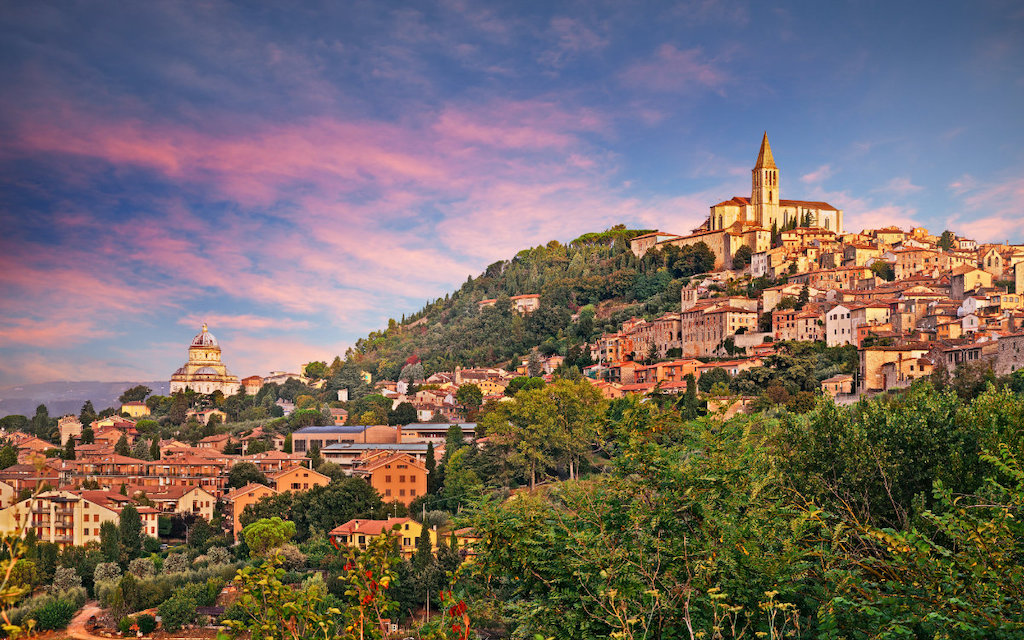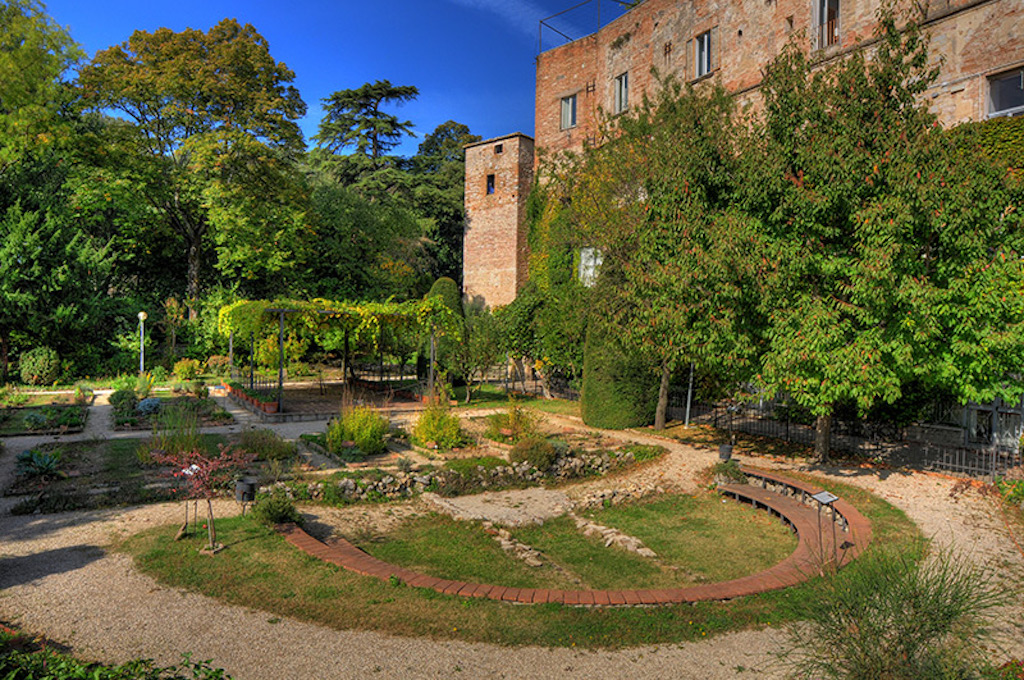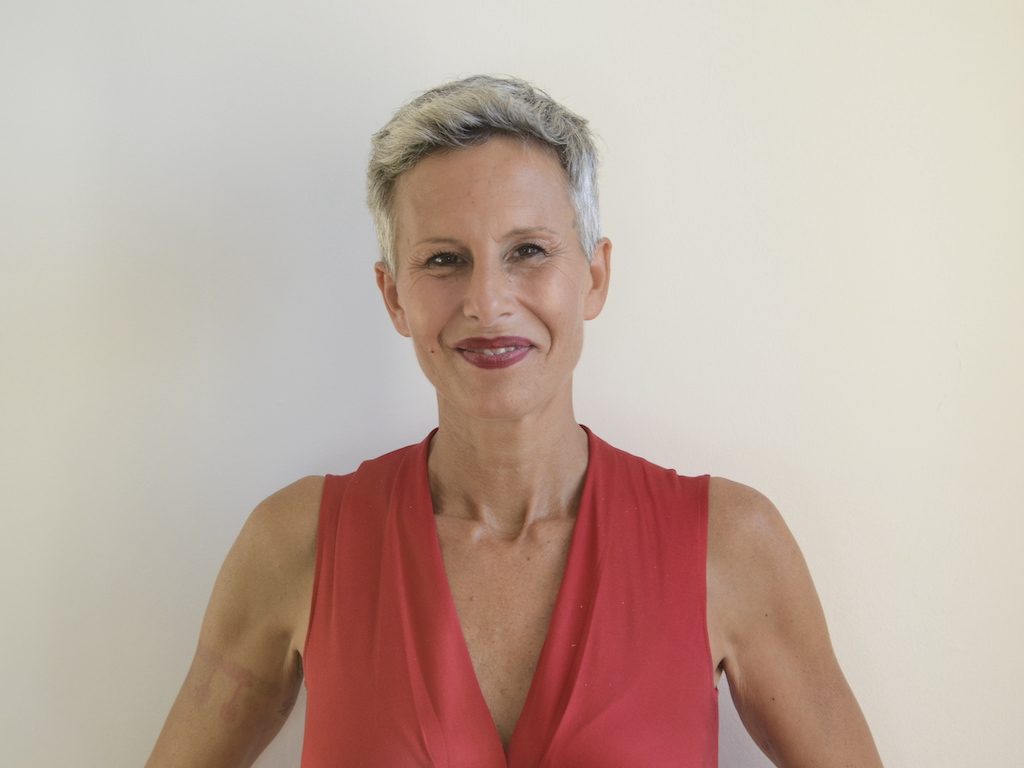7 Mins Read
The stakes have never been higher for the future of food. From deforestation to the climate emergency, from our over-reliance on industrial animal protein to water scarcity, it’s time for a complete rethink. Green Queen founder Sonalie Figueiras chats with Sharon Cittone about her Edible Planet Charter mission, why she chose Italy for her Summit, and the biggest misconceptions about the future of food.
Longtime systems change advocate Sharon Cittone is the brains behind the Edible Planet Summit, an immersive event happening this September during which she will bring together global industry leaders, activists, visionaries, and changemakers in the Italian countryside and empower them to imagine a radically different food system.
*This article was edited for length and clarity
GQ: What are you hoping to achieve with the summit? What would success look like to you?
SC: I have been organizing conferences and events in food and ag for a while now. For all the talk that goes on, not a lot gets done. When I founded Edible Planet I wanted to find a way to rally the collective passion that I know is out there, and direct it towards action. This is my philosophy and the Summit is an extension of this.
Our goals are both really modest and really ambitious, I guess you could say. We want the Summit to spark honest conversations about challenges in the food system and look at the systemic issues that got us here. We’ve reached a critical point as a planet, and for those of us in the food world, it’s time to get real and go beyond the hype. We’ve got to look at the system itself and admit that we’ve made mistakes. But by admitting this we can actually start looking at real possibilities and solutions.
The Summit would be a success if it got us out of our comfort zones and echo chambers, checked our egos at the door, and allowed ourselves to really enter into an impact-driven conversation that leads to meaningful collaboration and interaction. And yes, we will really have an “ego-check” at the entrance!

GQ: Why a summit and not a conference?
SC: Well, it has many names, to tell the truth: we could also call it an “unconference” or a “regenerative retreat”. We don’t want this to be just another stop on the conference circuit.
What we’re doing is really unique: we’re bringing together 150+ food system leaders to work together and co-design the future. We won’t have panel discussions or keynotes but will instead be using design and future thinking methodologies to unpack problems and look at them from every angle.
We’ll explore all the nuances and ask the questions that we should have been asking all this time. We’re also not necessarily looking to find all of the answers but if we can start working together on solutions, that’s already a huge achievement. We’re not there to represent anything more than our collective knowledge and experience but that’s already an enormous asset to create something for the future.
GQ: Why Italy, and more specifically Perugia?
SC: I’ve been going there a lot lately. My company is developing a project there, a model for the future of food working on all 17 SDGs, and I just fell in love with the region. It’s a place where you feel catapulted into a different time and space and I felt it had the right vibe for what I was trying to achieve. In addition, both the region and Todi are generously supporting us on this initiative so we definitely owe them a big thanks.
GQ: What is the Edible Planet Charter and how does it relate to the summit?
SC: The charter is the concrete result of this shared experience. It is a working document containing clear strategies, an action plan, and objectives that will be signed and distributed around the world to encourage the entire food system to collaborate.
But it’s not the last word on the subject, by any means. We think of it as a tool kit for stakeholders and a roadmap for policymakers to really understand both the short and long-term actions we need to take to achieve the 2030 and 2050 objectives. The Charter is going to be a living document that bears witness to what we’ve done at the Summit, and one couldn’t exist without the other.

GQ: How do you choose / curate the attendees?
SC: We decided to include around ten people per topic based on their expertise but also their experience. We wanted to think about who they are and what they’ve done to add to the conversation around the food system. It was obviously also really important to have an inclusive and diverse group that also represented all facets of the field. We included investors, activists, innovators, managers, academics, policymakers, writers, and more to be able to really listen to each other and connect with people we might otherwise never meet.
We also really wanted to avoid making it a club or clique of the same people seeing each other over and over again. And most importantly, we didn’t want it to be a case of preaching to the converted. We need people who are ready to learn something new and be inspired at the end of the process.
GQ: What are some of the biggest issues in the food system today?
SC: Among the many, I think that our biggest challenge is how much we still think in silos and don’t think about the nuances and understand that there is no ‘one size fits all’ approach to solutions. Everything is so vertical, we’re all looking to the sky instead of looking across at each other to see how we can help. Then we lament the fact that we don’t have time to think about systems, and we don’t get anywhere.
I really do believe that we have all the solutions to the issues of today, but we also need bold policy changes, clear commitments and real conversations about climate change, greenwashing, food security, and true cost accounting, to start. Those issues are so urgent, and we’re not looking with the right lens.
We need to really think as well about what the pandemic and now the war in Ukraine have taught us about the fragility of our global supply chains and the incredible disparity in a healthy diet. A lot of evidence suggests that people suffering from obesity or diabetes were more susceptible to covid, which tells us a lot about what it really means to be malnourished.
GQ: When it comes to the future of food, it seems there is a divide between the regen ag folks and the food tech/alt protein folks. What do you think about this?
SC: I do agree that there’s a divide but I think instead of arguing we should be looking at what the real issue is: intensive animal farming. The reality is that the plant-based movement needs regenerative ag to source sustainable ingredients and animal products are an essential element of regen ag.
And yes, while more and more people are embracing plant-based, the world is not yet vegetarian or vegan. Likewise, there are billions of people who depend on animals, either as a source of food or a source of income. I tend to think of it like this: what’s more sustainable, a plant-based protein patty with no clean label and industrially grown ingredients or a regen, grass-fed animal product? Which is healthier? If we don’t diversify beyond the same three or four types of crops and really work on biodiverse products, what’s the point?
If we really want a sustainable food system we have to work together with those things in mind. We just can’t afford to have any redlines when we’re thinking of solutions.
GQ: What are the biggest misconceptions about the future of food, according to you?
SC: I think people really miss the point about the “future of food” because too many people think it’s about finding the next big trends instead of thinking honestly about how to make things better. Then it becomes too trendy, and once it reaches the mass market becomes a status symbol or a brand that just builds upon itself. This isn’t how we’re going to solve the challenge of food insecurity or climate change, and it won’t save lives.
Thinking about the future of food means thinking of the future we want, and taking steps to change our systems and make them better. Otherwise, we’re just window shopping.
All images courtesy Sharon Cittone.




